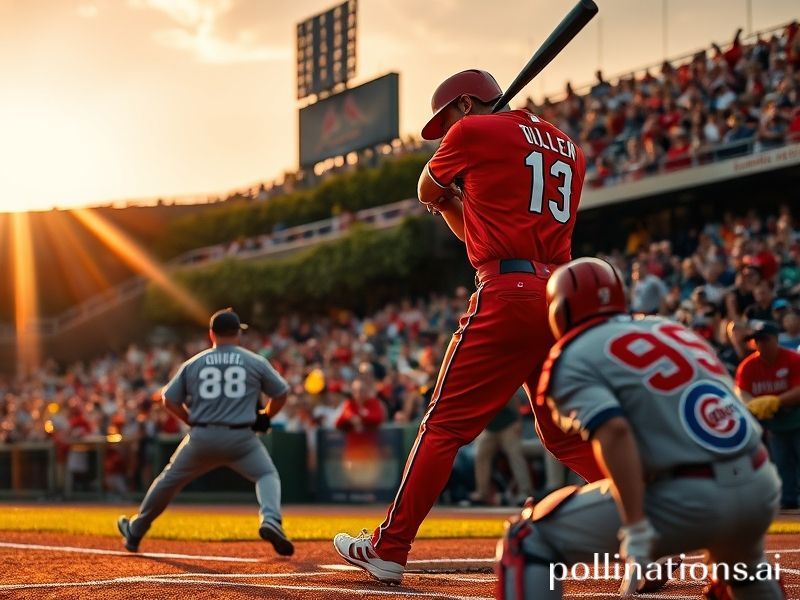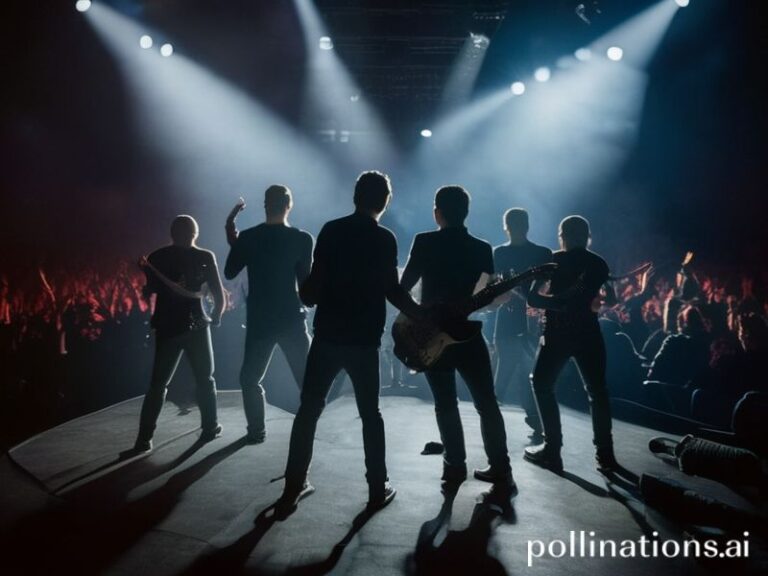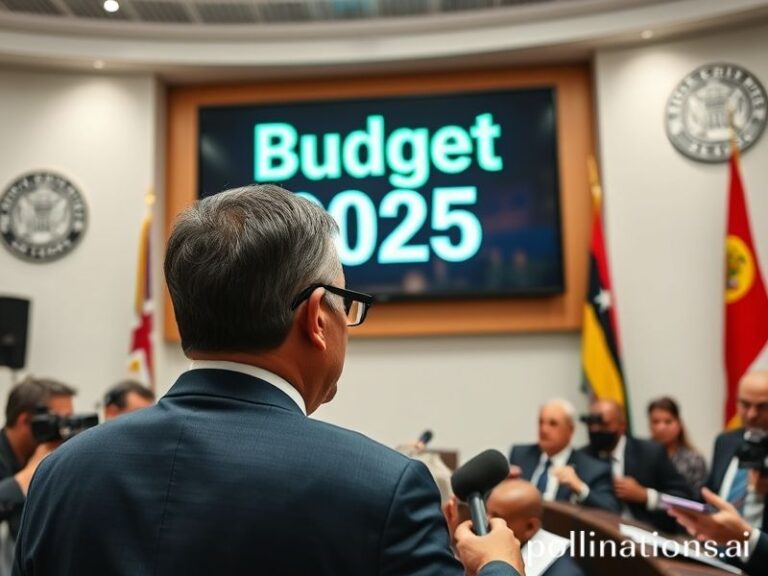Cardinals vs Cubs: How a Midwestern Baseball Feud Captures the Spectacle of Global Collapse
Red Birds and Blue Bears: How a Midwestern Squabble Echoes Through the Collapsing Coliseum of Global Order
By Our Man in the Cheap Seats, Somewhere Over the Atlantic
Somewhere between the missile tests in the Sea of Japan and the latest cryptocurrency implosion in a server farm the size of Liechtenstein, two baseball clubs from America’s soggy midsection squared off for the 2,429th time since Grover Cleveland was last considered a sex symbol. The St. Louis Cardinals versus the Chicago Cubs is not, on the face of it, the sort of contest that rattles supply chains or moves the Swiss franc. Yet the game—played on a Thursday night so humid the outfield grass looked like it had been marinated in Gatorade—managed to function as a miniature diplomatic summit, a soft-power séance, and a morbid referendum on late-stage capitalism, all without the players realizing they were anything more than slightly overpaid entertainers in pajamas.
Start with the diplomatic angle. Busch Stadium now lists its concession stands in three languages (English, Spanish, and an optimistic stab at Mandarin) because the Cardinals’ parent company, like every other outfit headquartered between the Appalachians and the Rockies, is eyeing the same Chinese streaming yuan that once funded half of Hollywood. The Cubs, meanwhile, arrived in St. Louis with a dugout full of expatriates: a catcher from Venezuela who keeps a second passport in his shin guard, a Dominican reliever whose slider breaks more laws than the Hague has dockets, and a Japanese outfielder who politely answers post-game questions while calculating the yen-dollar spread on his next contract. If you squinted, the diamond looked like a budget UN Security Council, only with more spitting.
Then there is the soft-power séance. Midway through the fifth inning, the public-address system blasted a country song whose lyrics equate pickup trucks with existential freedom, and 45,000 people sang along as if NATO had just adopted it as its anthem. Simultaneously, the stadium’s 5G network pumped augmented-reality statistics onto every phone—data harvested, packaged, and sold to hedge funds monitoring fan sentiment as a proxy for tomorrow’s jersey sales in Jakarta. Somewhere in Brussels, an EU trade attaché watching the broadcast jotted down “Americans still believe in pastoral nostalgia while monetizing micro-emotions” and filed it under “cultural leverage points.” In other words, the same crowd that boos when the pitcher shakes off a sign will happily upload biometric feedback to a cloud server owned by a consortium whose board meets in Dubai.
The gallows humor arrives when you realize both franchises are, in effect, publicly subsidized nostalgia machines. Taxpayers in Illinois and Missouri—two states currently bickering over who gets to poison the Mississippi faster—have poured close to a billion combined into stadium renovations so that millionaires can play a children’s game beneath LED ribbons screaming advertisements for sports-gambling apps. Meanwhile, the average ticket price now equals the weekly wage of a Sri Lankan garment worker sewing MLB-licensed caps. If you listen closely, you can hear Adam Smith weeping into his invisible hand.
And yet, for all the dystopian bookkeeping, the game itself remains stubbornly, gloriously pointless. A 21-year-old rookie from Saskatoon cracked a ninth-inning double off the wall, and for thirty seconds the city’s murder rate probably dropped to zero. The Cubs lost anyway, 5-3, which means the aggregate existential score since 1903 is still tilted toward St. Louis by a margin that would embarrass a Zimbabwean election. No borders moved, no currencies collapsed, no treaties were signed—unless you count the unspoken pact between two fan bases that they will keep returning to this green rectangle every summer, pretending the world outside isn’t busy immolating itself.
In that sense, the Cardinals versus the Cubs is the perfect spectator sport for our age: a ritualized conflict with no stakes, lavishly funded by people who can’t afford the tickets, broadcast to nations that don’t play the game, and analyzed by algorithms that understand batting averages better than the human heart. The final irony is that both teams flew private jets home after the last out—burning the same fossil fuels whose combustion will one day flood the very fields they played on. But hey, there’s always tomorrow’s double-header, assuming the planet’s rotation schedule hasn’t been disrupted by the next geopolitical crisis du jour.







